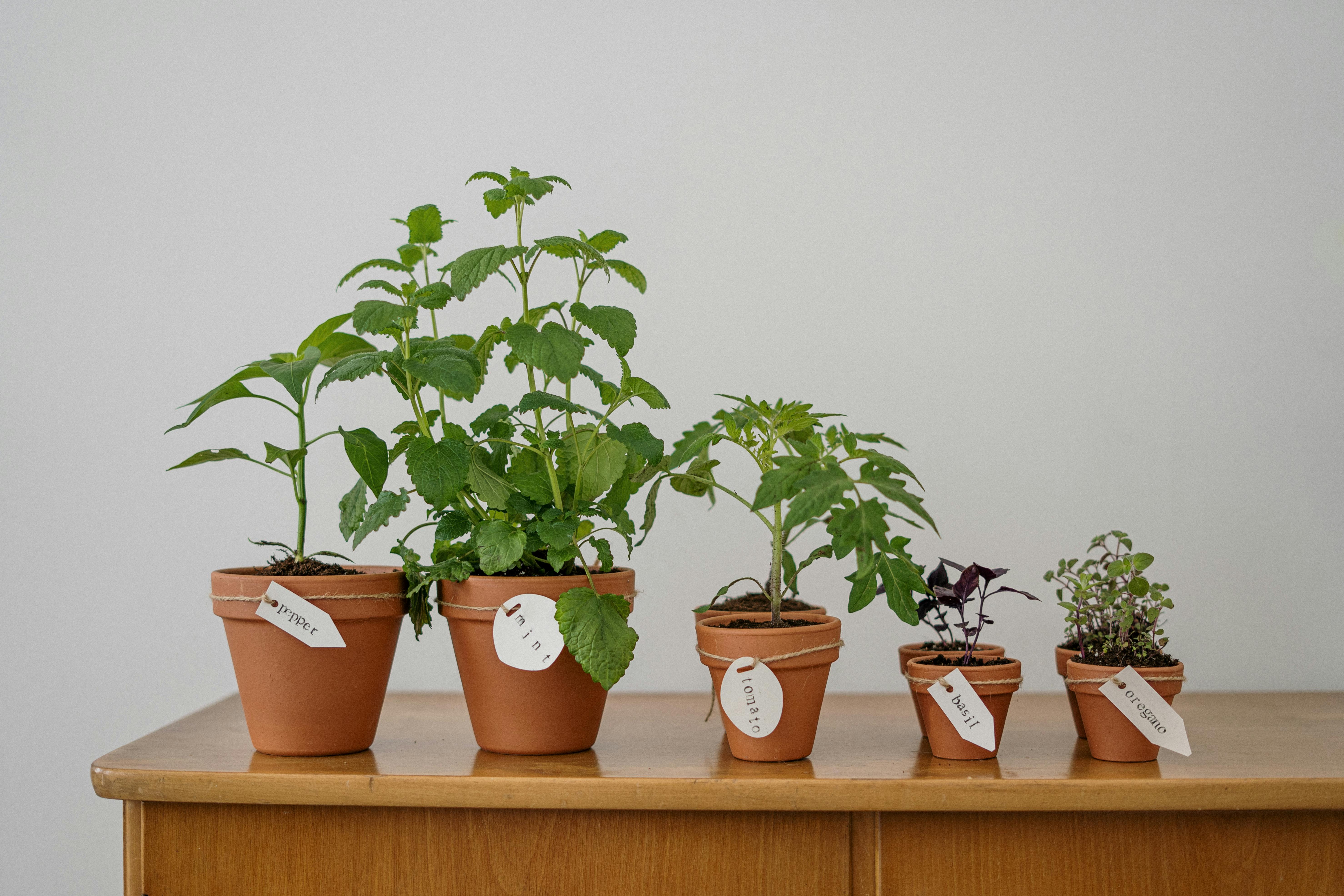Do deer like tomato plants? It’s a common question among gardeners, especially those living in rural areas. Deer are known for their appetite for foliage and flowers, but do they have a taste for tomatoes? To answer this question, it helps to understand the dietary preferences of deer and how to protect your tomato plants from them. In this article, we’ll explore the answer to this age-old question and offer some tips on how to keep deer away from your prized tomatoes.
Do Deer Prefer Wild or Cultivated Plants?
Deer are known to be browsers, meaning they will eat a variety of plants, both wild and cultivated. While some deer may prefer one or the other, it depends largely on the situation and availability. Generally, deer will opt for wild plants when they are available. Wild plants tend to be more nutritious and have a higher content of minerals and vitamins which make them a preferred food source for deer.
Cultivated plants may also be appealing to deer if they are readily available and easy to access. This is especially true in suburban areas where homeowners plant gardens and deer may find it easier to obtain food from these sources rather than foraging in the wild. Deer may also take advantage of crops such as corn or soybeans planted by farmers or gardeners that are easy to access.
In some cases, deer may actually prefer cultivated plants over wild ones due to their taste preferences. Many species of cultivated plants have been bred for their flavor or texture which can make them more attractive to deer than wild varieties. Additionally, cultivated plants typically grow faster and can provide an abundant food source that is easier for deer to access than searching for food in the wild.
Ultimately, whether a deer prefers wild or cultivated plants depends on its individual preferences and what is available in its habitat. In most cases, however, a diet of both wild and cultivated plants is beneficial as it provides deer with essential nutrients they need while also giving them access to different flavors and textures which can help keep them healthy and well-nourished.
How Do Deer Choose What to Eat?
Deer are selective eaters and are most likely to opt for food sources that are high in nutrition. Generally, their diet consists of grasses, herbs, twigs, leaves, nuts and fruits. They may also feed on fungi, lichens and other types of vegetation. Deer have different nutritional needs depending on the season, as they need more calories during winter months to survive.
In order to satisfy their nutritional requirements, deer have evolved with a keen sense of smell and taste that helps them differentiate between plants that can provide them with the nutrients they need and those that are not beneficial. They also rely heavily on their sharp vision in order to locate food sources quickly and easily.
Generally speaking, deer will choose food sources that offer the most nutrition in terms of quantity or quality. If there is an abundance of food available, then deer tend to prefer higher-quality foods such as herbs and nuts over grasses and twigs. As the availability of food decreases during winter months, deer are more likely to feed on less nutritious plants such as bark or twigs in order to meet their energy requirements.
Overall, deer have a very sophisticated feeding strategy that enables them to make informed decisions about what they consume based on both their taste preferences and nutritional needs.
Can Tomato Plants Help Deter Deer from Yards?
Tomato plants can be an effective way to deter deer from yards. These plants contain a natural scent that deer find unpleasant. This smell is strong enough to keep the animals away and make them feel uncomfortable. It also provides the added benefit of providing a tasty snack for humans, so it’s a win-win situation for everyone involved.
In addition, tomato plants are easy to grow and require minimal maintenance. They can be planted in containers or directly in the ground, and they thrive in most climates. The fruits can also be planted near other vegetables or flowers that may be attractive to deer, offering another layer of protection against these pests.
The scent of tomato plants is not only unpleasant to deer, but it can also help mask other scents that might attract them. For example, if you have a compost pile nearby or if you have animals such as cats or dogs roaming around your yard, planting tomatoes near these areas can help reduce their attractiveness to deer.
Tomato plants are also relatively inexpensive and easy to find at local nurseries or home improvement stores. They typically produce fruit within two months of being planted and last for several years with proper care. This makes them an ideal solution for anyone looking for a cost-effective way to keep deer away from their yard.
Overall, tomato plants are an effective way to keep deer away from yards without resorting to chemical repellents or other potentially harmful methods. They provide a natural scent deterrent while still offering plenty of benefits for humans as well.

Are Tomato Plants Toxic for Deer?
Tomato plants can be toxic for deer if they consume them. Deer are known to eat many types of plants, including tomatoes and other vegetables, but they should avoid eating tomato plants due to the potential toxicity. Tomatoes contain a chemical called solanine, which is poisonous if consumed in large quantities. Solanine can cause gastrointestinal distress, including vomiting and diarrhea, as well as neurological issues such as tremors and seizures.
In addition to solanine, tomato leaves are also toxic to deer because they contain oxalic acid. Oxalic acid can cause severe irritation of the digestive system if it is ingested in large amounts. Ingestion of oxalic acid can lead to mouth ulcers and even death in severe cases.
Although tomatoes are toxic for deer, it doesn’t mean that you have to remove them from your garden completely. You should still be able to grow tomatoes without worrying about deer eating them as long as you take some precautions. For example, you can use fencing or netting around your garden beds to keep deer away from the plants or spray your tomato plants with a repellent that contains capsaicin or garlic oil. These repellents are safe for use around edible plants and help keep deer away without harming them or the environment.
In conclusion, while tomato plants may be toxic for deer if ingested, there are ways that you can protect your garden from these hungry herbivores without having to remove the tomatoes completely. By using fences or netting around garden beds or spraying repellent on the plants, you can ensure that your tomato crop is safe from harm while still allowing yourself to enjoy its delicious fruits!
Do Deer Avoid Eating Fruits and Vegetables in General?
In general, deer do not avoid eating fruits and vegetables. While they prefer to eat grasses, legumes, leaves, and twigs, deer will also feed on fruits and vegetables when available. Many deer species have a strong preference for certain types of fruits and vegetables, such as apples or carrots. For example, white-tailed deer are known to have a strong preference for apples, while mule deer prefer carrots.
Fruits and vegetables provide essential nutrients that are essential for a healthy diet for deer. Fruits provide simple sugars that are easily digested and absorbed by the body. Vegetables are rich in vitamins and minerals that can help the deer stay healthy. In addition, fruits and vegetables can provide a valuable source of hydration during periods of drought.
Deer can become conditioned to feeding on certain types of fruits and vegetables if they are provided consistently over time. If you plan to offer fruits or vegetables to deer in your area, it is important to ensure that these items are always offered in the same location so that the animals become accustomed to their presence. This will make it easier for them to find these food sources when they need them.
Protecting Tomato Plants from Deer
As a homeowner, it is important to protect your tomato plants from deer. Deer can quickly ruin your tomato crop if given the opportunity, so taking proactive steps to safeguard your plants is essential. One of the best ways to protect tomato plants from deer is by installing fencing around the garden. Fencing should be tall enough to deter deer and have a secure gate that can be locked at night.
Another effective way to protect tomato plants from deer is by using repellents. Commercial repellents are available at garden stores and can be applied directly to plants or used as a spray around the perimeter of the garden. Natural repellents such as human hair, dried blood meal, or soap shavings can also be used.
In addition, companion planting can help deter deer from tomato plants. Planting strong smelling herbs such as oregano or garlic near the tomatoes may help keep deer away. Planting marigolds or nasturtiums is another way to deter deer since they produce an unpleasant odor when stepped on.
Finally, homeowners can also create scare devices and lights that will frighten away any deer that come near their garden. Motion-activated lights, loud horns or whistles, and plastic owls are all effective methods for keeping deer away from tomato plants. Taking these simple steps will help ensure that your tomato crop will remain safe and healthy throughout the growing season.

Conclusion
In conclusion, we can see that deer do like tomato plants. Though there is no definitive answer as to why this is the case, we can make some educated guesses. It may be due to the taste of the tomatoes or the fact that they are easy to access. Whatever the reason, it is clear that deer do enjoy eating tomato plants and will continue to do so in many parts of the world.
It is important for gardeners and farmers to take necessary precautions in order to protect their tomato plants from deer. Building a fence around the garden or using repellents are just some of the methods they can use in order to keep deer away from their tomato plants.
Overall, it is clear that deer do like tomato plants and it can be quite a nuisance for farmers and gardeners alike. Taking preventive measures can help reduce this problem and ensure that their tomatoes remain safe from hungry deer.

